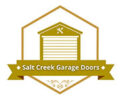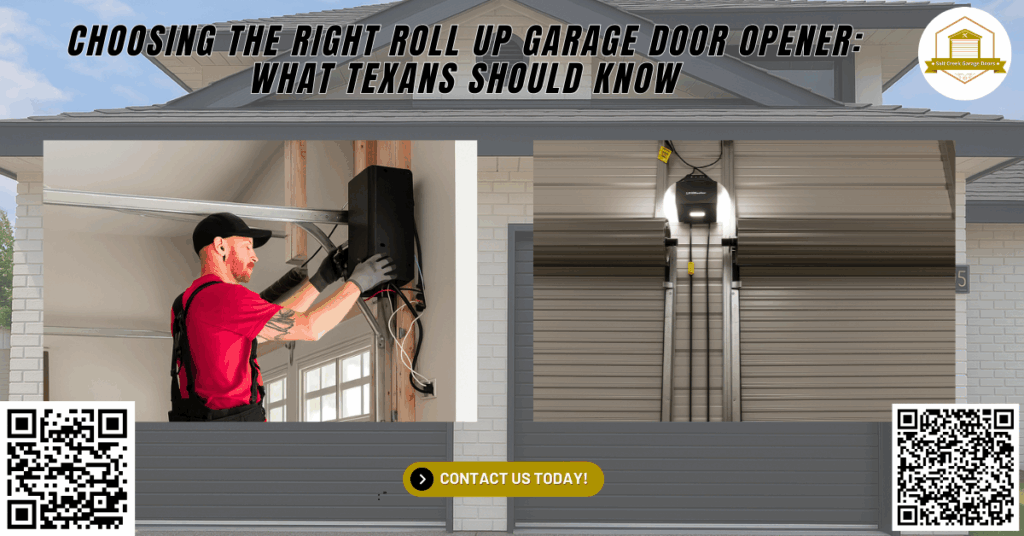When a local Lincoln business contacted us about their large commercial roll-up garage door malfunctioning, we knew time was critical. The steel rolling sheet door, over 16 feet wide, had completely stopped working, trapping delivery vehicles and halting business operations. After a thorough site check, we discovered that the existing light-duty opener model was not rated for such heavy-duty use. Our technicians upgraded it to a certified wind load commercial opener, complete with a chain hoist backup. Within hours, their operation was back online, and they haven’t had a problem since.
According to the International Door Association, up to 75% of garage door issues stem from improper installation or incompatible openers, especially in commercial applications. In Nebraska, where wind loads, building codes, and weather extremes are part of daily life, picking the right roll-up garage door opener is not just a luxury; it’s essential.
Whether you’re overseeing a warehouse in Lincoln, a retail site in Bellevue, or a home garage in Waverly, understanding the mechanics and models of roll-up garage doors can help you choose the safest, most durable, and most cost-effective system.
What Is a Roll-Up Garage Door?
A roll-up garage door (sometimes called a rolling sheet door or slat door) operates by coiling upward into a roll, typically mounted just above the door opening. Unlike sectional doors that use panels and overhead rails, roll-up doors save space and are known for their durability, strength, and efficient operation. They are a popular choice for commercial buildings, industrial facilities, storage units, and even residential garages with limited headroom.
These doors are typically made from corrugated steel sheets or aluminum slats that are guided by vertical tracks and wound around a drum using a chain hoist or motorized opener. They come in various models, sizes, and colors, and some even include windows, insulation, or fire-rated designs for environmental controls or compliance with building standards like the Florida Building Code or International Building Code.
Types of Roll-Up Garage Door Openers
Choosing the correct opener model depends on several variables, including door size, door weight, and usage frequency. Below are the most common types of openers for roll-up garage doors, used in both residential and commercial applications.
1. Jackshaft Openers
Mounted beside the garage door instead of overhead, jackshaft openers are a great space-saving option, especially in garages with masonry ceilings or obstructed rafters. They’re designed for medium to heavy-duty doors and often include chain-driven mechanisms for quiet and reliable operation.
✔️ Ideal for: Residential garages, retail shops, sheds, and tight ceiling spaces
✔️ Special features: Battery backup, Wi-Fi connectivity, soft start/stop
✔️ Available models: LiftMaster 8500W, Amarr model features, Janus model features
2. Trolley Openers
These are the most common in residential garage door installations. Trolley systems use a central rail attached to the ceiling and a chain or belt to move the door.
✔️ Ideal for: Light-duty residential roll-up doors
✔️ Limitations: Not suitable for high-cycle or heavy-duty commercial roll-up doors
✔️ Available options: Quiet belt drive, standard chain drive
3. Hoist Openers
These are industrial-grade openers designed for high-load, frequent-use scenarios. They typically come with a chain hoist for manual operation and are compliant with commercial building codes.
✔️ Ideal for: Warehouses, factories, agricultural sheds, fire stations
✔️ Special features: Heavy-duty motor, cam action device, easy adjustment
✔️ Certified for: High wind load, fluctuating temperatures, international code standards
Key Considerations for Nebraska Property Owners
When selecting a roll-up garage door opener, it’s important to consider local environmental conditions, building code requirements, and intended use. Here’s what to keep in mind:
1. Door Size and Material
The size, weight, and material of your garage door play a critical role. A steel door used in commercial warehouses will demand a much stronger opener motor than a light-duty aluminum door at a residential address.
- Typical commercial door sizes: 10×10 to 16×18 feet
- Common materials: Galvanized steel, durable polyester paint, aluminum slats
2. Certified Wind Load Ratings
Nebraska’s wind speeds, especially during spring storms, require garage door models to meet certified wind load standards. Choosing an opener that supports reinforced panels, locking mechanisms, and wind braces is critical for safety and compliance.
3. Cycle Rating and Usage Frequency
How often the door is used each day (aka the cycle rating) determines whether you need a light, medium, or heavy-duty opener. Businesses may need openers that support 50+ cycles per day, while a home might only require 5–10.
4. Energy Efficiency and Insulation
An insulated roll-up garage door can help regulate temperatures and reduce energy costs, particularly for climate-sensitive buildings and storage units. Look for models with foam-filled slats or dual-layer construction.
5. Special Features and Smart Controls
Modern openers offer Wi-Fi connectivity, mobile app access, timed closing, and safety lockout features. These are helpful for both security and convenience, especially in large commercial operations.
Common Mistakes to Avoid
Salt Creek Garage Doors has fixed many installations that went wrong due to the following:
- ✅ Mismatched opener type: Using a residential standard opener on a heavy-duty roll-up door
- ✅ No wind rating: Choosing a door or opener that fails wind load certification
- ✅ Ignoring the duty cycle: Installing a low-cycle opener on a high-use application
- ✅ Skipping maintenance: Failing to follow product guides or perform annual inspections
- ✅ Using low-quality materials: Opting for cheap sheet doors or non-rated components
Avoiding these pitfalls can extend your system’s durability, reduce repair costs, and ensure long-term warranty coverage.
Maintenance and Warranty Insights
Routine garage door maintenance is essential for performance and safety. We recommend:
- 🔧 Monthly chain and rail lubrication
- 🔍 Quarterly safety reverse testing
- 🧰 Annual professional inspection and torque adjustments
- 📜 Registering your opener for full-year or extended warranties
Brands like Amarr, Janus, and Mueller offer year warranties that cover parts, labor, and motor defects, especially for models used in approved field applications under compliant building codes.
Why Nebraska’s Climate Demands the Right System
In addition to cold winters, humid summers, and sudden wind gusts, buildings in Nebraska must also meet regional safety expectations, like:
- ✅ Florida Building Code (FBC) for hurricane-resistant openings
- ✅ International Building Code (IBC) for wind, fire, and impact resistance
- ✅ Local zoning code that may require environmental controls for doors installed near masonry walls or sensitive equipment
If you’re unsure whether your door setup meets code, we can perform a full site inspection and make recommendations for safety and compliance.
How Can Salt Creek Garage Doors Help You?
At Salt Creek Garage Doors, we pride ourselves on being Lincoln’s trusted name for garage door installation, repair, and custom door upgrades. Whether you’re outfitting a light-duty residential garage or managing a heavy-duty commercial roll-up installation, we’ll help you:
✅ Choose the right garage door opener model
✅ Match available panels and available colors to your building’s design
✅ Install insulated, wind-rated, or chain hoist-compatible openers
✅ Maintain and inspect your opener for maximum durability and code compliance
✅ Provide fast, on-site service and honest pricing
📍 Visit us at: N 27th St, Lincoln, NE 68504
📞 Call us today: 402) 275-4518
👉 Contact Salt Creek Garage Doors Today– Where Quality Meets Reliability.
Frequently Asked Questions (FAQs)
1. What’s the difference between a sectional garage door and a roll-up garage door?
A sectional door opens in horizontal panels overhead, while a roll-up door coils into a compact roll above the opening.
2. Can roll-up garage doors be painted to match my building?
Yes, most manufacturers offer durable polyester paint options and custom colors to match your site preferences.
3. How long does it take to install a roll-up garage door and opener?
Installation usually takes between 4 to 6 hours, depending on the door size, site conditions, and model complexity.
4. Are roll-up doors suitable for sheds or barns?
Yes! Roll-up doors are a great fit for agricultural sheds, pole barns, and storage buildings where space is limited.

